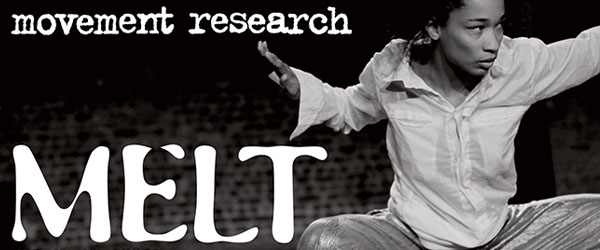Critical Correspondence
- Comments Off on MRPJ#4/Speaking Ethnicity: Extras
- MRPJ Project
- 11.6.08
MRPJ#4/Speaking Ethnicity: Extras
The attempts by artists “outside the mainstream” to organize alternatives, whether entrepreneurial or cooperative, are forms of resistance. And while such attempts should be supported, monopoly capitalism seriously circumscribes the power of these efforts. They cannot directly compete with the monopolies, and so are usually absorbed or bought out as those with initially alternative intentions are forced to sell out—at a price no one can refuse! The only possibility for sustained resistance is if alternative efforts are allied with and supported by movements to restructure the system of wealth and power in society as a whole, i.e., led by revolutionaries whose principal motivation places the making of art in the organized context of making social revolution. The measure of these efforts is the degree to which a new system is being put into place, rather than how much one has gotten over within the existing one. –from A Call for Cultural Guerrillas:
U.S. Imperialism in its Monopoly Stage and its Effects on Where American Culture is Going by Fred Wei-han Ho
In celebration of Movement Research’s 30th Anniversary, Critical Correspondence is reprinting monthly excerpts from each of the first 30 Performance Journals. We will be featuring representative and relevant articles as well as each of the issues’ editorial note. It is both enervating and challenging to look at the historical map that precedes our time – the continuity of mission, the diverse attempts to “word” a practice, the voices that have gone and the ones that keep returning, the ongoing development of discourse alongside political struggles.
Edited by journalist and activist Esther Kaplan, Speaking Ethnicity, confronts and redefines the discourse of “multiculturalism” of the 90s from the perspective of choreographers, poets, journalists, visual artists, scholars and more. Among the writers are Grisha Coleman, Cheryl Dunye, Peggy Myo-Young Choy, Adrian Piper, David Rousseve, Edwin Torres and Charmaine Warren. We feature Coco Fusco’s Stateless Hybrids and hope you will be hungry for much more.
Many of these Journal issues are available for purchase at Movement Research. As always, we welcome your comments at the end of each reprinted article, or at cc@movementresearch.org. We are also posting table of contents for each issue for your reference.
One of the effects of colonialism is to deny us our bodies. To dance, to use our bodies to express and transform our experiences and realities, becomes for colonized people a political act, an affirmation of our identity and our individuality. If we cannot dance in our own ways, if we must assume Western aesthetics and techniques to express ourselves, to be acknowledged and respected for our work, we continue to express ourselves only with what Audre Lorde has termed “the master’s tools.” We adopt the language of the oppressor and, in doing so, continue to internalize racism. Affirming our unique vision and experience of the world, we validate our individuality and otherness and indeed the complexity of our world. –from Dance in our Diverse Society by Merián Soto


